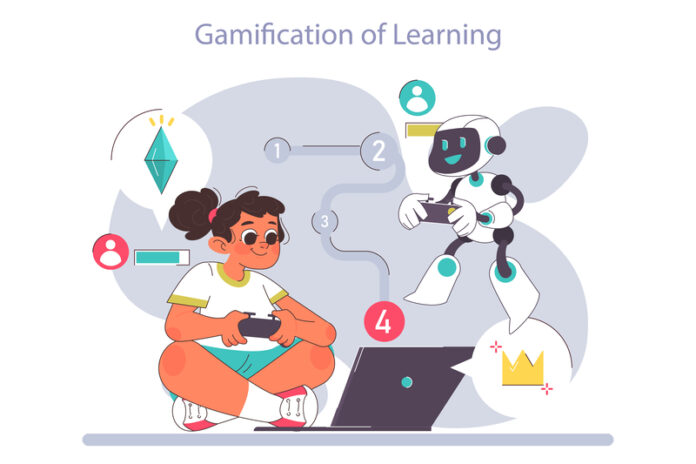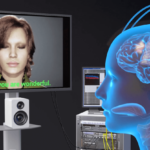Peter Diamandis continues to look at the impact of artificial intelligence (AI) in our lives now and in the future. In this posting, he describes how AI will change the nature of education. Our current educational models date back to the 19th century. The regimentation of learning is a consequence of the Industrial Revolution and the need to create a viable workforce for a rapidly changing world. Why we have stuck with it into the 21st century is more about inertia than about its effectiveness in an age where the Internet and search engines have replaced encyclopedias and institutions of learning as the primary sources of knowledge dissemination.
Peter believes “we owe the next generation” what he calls “AI-powered education.” He explains how it can already work using the example of Khan Academy and the personal story of a young woman from Afghanistan named Sultana. It’s a great story!
Alongside healthcare, I can’t think of another field more in need of reinvention than education. Some teachers and schools have come out saying that using generative AI tools is a form of cheating, and others have banned them altogether. But as Stability AI CEO Emad Mostaque notes:
“Education isn’t about competition. We made it a competition. It’s about actuation.”
An alternative vision of education powered by AI is about the learning process becoming more personalized and effective.
Revolutionizing How We Learn
Imagine a future where every student has their own personalized AI that is customized for them and looks out for them. Are you a visual learner? Do you learn best through listening? Are you dyslexic?
Imagine an AI that uses an iPad’s forward-looking camera to study a student’s facial expressions as a lesson is being delivered. If the student looks confused or bored, the AI can change tack, adjusting the lesson accordingly from a different point of view, or at a different level of complexity.
Imagine a future where a teacher’s AI assistant adapts to each student’s learning style and pace, offering personalized education, and incorporating a student’s favourite sports stars or movie stars into the curriculum. It can track a given student’s progress, identify trouble areas, and optimize on the fly.
Beyond AI alone, the combination of AI and VR together promises to make learning “experiential” and “immersive,” delivering lessons that are unforgettable and hyper-personalized.
I remember as a child going to Greek School to learn about my heritage, and then at MIT taking a course on ancient cultures covering Socrates, Plato, and Aristotle. Whatever way you cut it, reading historical textbooks about philosophy is difficult at best. Imagine instead, entering an interactive VR world set in ancient Greece, surrounded by a vibrant Agora, encircled by bustling crowds, lively debates, and the grand architecture of a flourishing city-state at the pinnacle of its cultural and intellectual achievements.
As you traverse the cobblestone pathways, an arresting figure captures your attention. Seated on a marble plinth, an elderly man exudes an air of wisdom. His physique is draped in the unadorned elegance of a white toga, a white beard frames his gaze. With a graceful rise, he beckons you forward and extends his hand. “Greetings, traveller,” he proclaims with a genial smile, “I am Socrates, your guide here in Athens. May I show you around and answer your questions?” Embracing his invitation, you find yourself wandering alongside the philosopher, meandering through the vibrant streets. As you walk, Socrates, with a storyteller’s flair, illustrates the daily routines of Athenian life, while recounting local politics and recent history. He guides you towards the Acropolis that rises like a crown above the city and introduces you to his many friends and pupils as you walk.
The generative AI imagery and experience are so immersive and compelling that you forget you’re in VR. It feels more like a real-life experience. Perhaps most importantly, everything this AI version of Socrates says and does is driven by a fully validated large language model (LLM) built upon historical consensus.
In this fashion, AI in partnership with VR will allow us to experience the greatest moments in human history ranging from the signing of the Declaration of Independence alongside Thomas Jefferson and John Adams to walking on the surface of the Moon with Neil Armstrong and Buzz Aldrin.
Sultana’s Story
When I think about digitizing, dematerializing, demonetizing, and democratizing education, one of the most impactful stories I’ve ever heard was told to me by Sal Khan, Founder and CEO of Khan Academy.
Sometimes a single individual’s story can best exemplify the power of a new technology to transform a field. This is one such story about a young girl in Afghanistan named Sultana who used Khan Academy to educate herself and change the course of her life. Sultana grew up in Afghanistan, and when the Taliban took over her town, they forbade all the young girls from going to school. Khan Academy became her lifeline. She studied everything from elementary school math to algebra and trigonometry, eventually moving on to physics, chemistry, and other subjects. Without access to school or teachers, she used Khan Academy’s free online lessons and courses, all from the safety of her home.
Here’s how Sultana later described the experience in a 2021 article in The Economist:
“Armed with an iPad, the internet and a free education website called Khan Academy, I taught myself English. And philosophy. And math. And science. And history. I wanted to understand the world in every way possible, and my place in it. Solving math problems gave structure to the uncertain world I was living in, even if just in my head. I felt liberated when I first learned to make a graph of a linear equation. On the page, drawing a two-dimensional coordinate plane and graphing an equation, the world was in my control.”
Sultana then decided that she wanted to be a theoretical physicist in the United States. So, she smuggled herself into Pakistan to take the SAT because the test wasn’t offered in Afghanistan. She passed. Soon after, she was admitted to Arizona State University, graduating with honours!
Where’s Sultana now? She’s currently a member of the research faculty at Tufts University studying quantum computing.
Since Sultana’s success, the Khan Academy has super-charged its platform using generative AI powered by GPT-4 from OpenAI. The new product is called Khanmigo, an AI-powered teaching assistant, that can amplify the power to educate and ultimately help humanity enable many more Sultanas in our future.
Announced in March 2023, Khanmigo adopts an AI-powered Socratic, narrative-driven approach to engage students. It promises to make learning easier and more efficient, functioning as a personal tutor that engages students interactively, assisting with meaningful exercises, diagnosing mistakes and encouraging understanding over memorization.
Khanmigo is designed to understand students’ reasoning, a departure from traditional rote methods of learning. It contextualizes learning to a student’s interest, asking probing questions to reveal practical applications of academic concepts.
Khanmigo’s integration into the educational process is showcased through interactive features such as reading comprehension aids, AI memory for ongoing interactions, and narrative progress reports. Future updates will soon include voice interaction and multi-user activities.
Khanmigo is not a replacement for human teachers. Instead, it serves as an assistant to educators, allowing them to focus on fostering critical human skills such as judgment and creativity. It also provides recorded AI conversations for review, while supporting grading, lesson planning, and providing personalized guidance, aiming to reduce teacher workload.
Why This Matters
Given how fast everything is changing, we need to keep the world from revolting at the rate of disruption. This means giving people access to high-quality education and helping them believe that they have a future that is compelling and abundant. AI in education creates a compelling way to teach and learn, independent of where you live and how wealthy you are. If that’s not democratization in learning, what is?
















